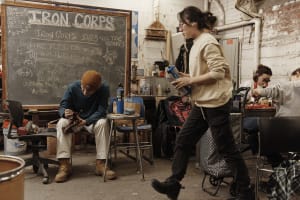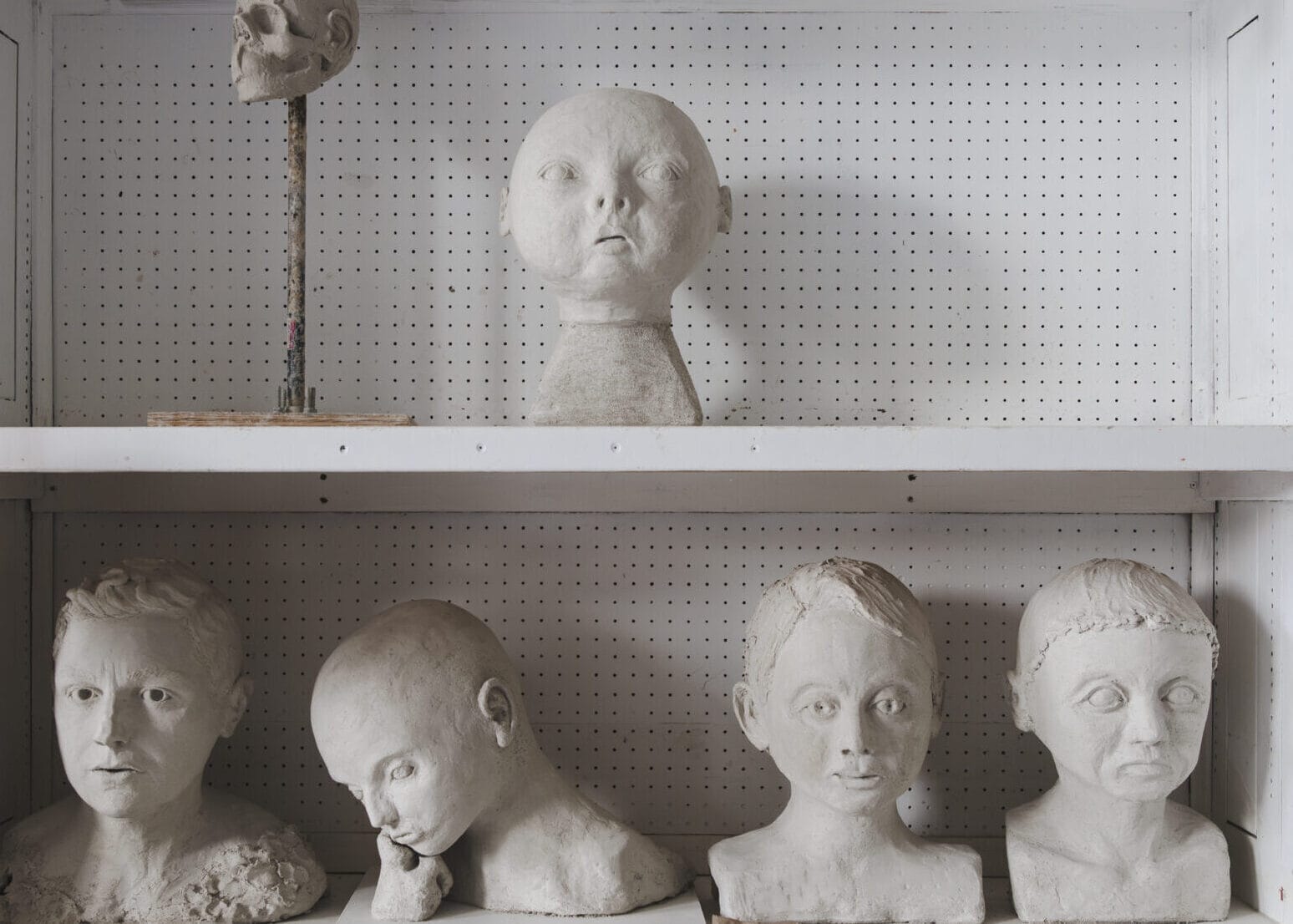

Students in our Sculpture and Fine Arts programs have access to MassArt’s metal shop, clay figure studio, plaster studio, and woodshop.
Learn MoreAs a Sculpture BFA student, you’ll hone your creative practice in whatever medium – or mediums – you choose.
Location: On Campus (Boston)
Format: In-person, Full Time
Length of Program: 4 years
Degree Awarded: Bachelor of Fine Arts in Sculpture
As a Sculpture BFA student at MassArt, you’ll explore three-dimensional art across a wide range of materials—wood, metal, clay, plaster, glass, fiber, stone, mixed media, and even video. From foundational courses to advanced seminars, you’ll learn essential sculptural techniques like bronze and aluminum casting, mold making, chasing, cold fabrication, and wood carving. Our program emphasizes both personal expression and technical mastery, helping you bring your ideas to life.

Form to Fire class in the Foundry with Marjee Levine.

Sculpture busts in a 3D arts studio classroom.

Wood Carving class in the Woodshop with Annie Meyer.
In your coursework, you’ll cover topics such as anatomy, figure modeling, foundry work, mold making, carving, woodworking, welding, kinetic art, digital 2D-to-3D processes, portraiture, and installation. Beyond learning techniques, you’ll explore how to develop ideas, shape concepts, and consider how your work engages communities, interacts with spaces, and responds to the history and possibilities of sculpture.
In your junior and senior years, you’ll work closely with faculty mentors and participate in group critiques with faculty and visiting artists. Our faculty are working artists who bring a diverse array of approaches to making sculpture. By graduation, you’ll have developed a coherent body of work based on sophisticated techniques and a maturing sense of aesthetic direction.
Students who complete the Sculpture BFA program are expected to be able to demonstrate the following learning outcomes.
MassArt Sculpture graduates are prepared with hands-on experience, professional tools, and real-world workflows that make them valuable contributors in a wide range of creative industries.
The Sculpture program delivers a rigorous and comprehensive education that equips students with the skills, knowledge, and artistic vision needed to pursue meaningful and successful creative careers.
Architectural Metalwork, Museum & Curatorial Production, Fine Arts and Craft-Based Studio Work, Cabinetmaking, Furniture Design, Fabrication and 3D Modeling, Public Art Fabrication and Installation, Industrial or Product Design, Set and Stage Design.
Abbas Woodworking, Artists For Humanity, Vivian Beer, Sculpture Trails Outdoor Museum, Arts and Mind Lab, Connecticut Metallurgical, Inc., Fenway Gallery, NEDCC | Northeast Document Conservation Center, Sincere Metal Works.
Boston Sculptors Gallery, Institute of Contemporary Art (Boston), Barbara Krakow Gallery, Center Street Studio, Smithsonian Institution, Independent artist studios, public art commissions in municipal and urban spaces


Students in our Sculpture and Fine Arts programs have access to MassArt’s metal shop, clay figure studio, plaster studio, and woodshop.
Learn More